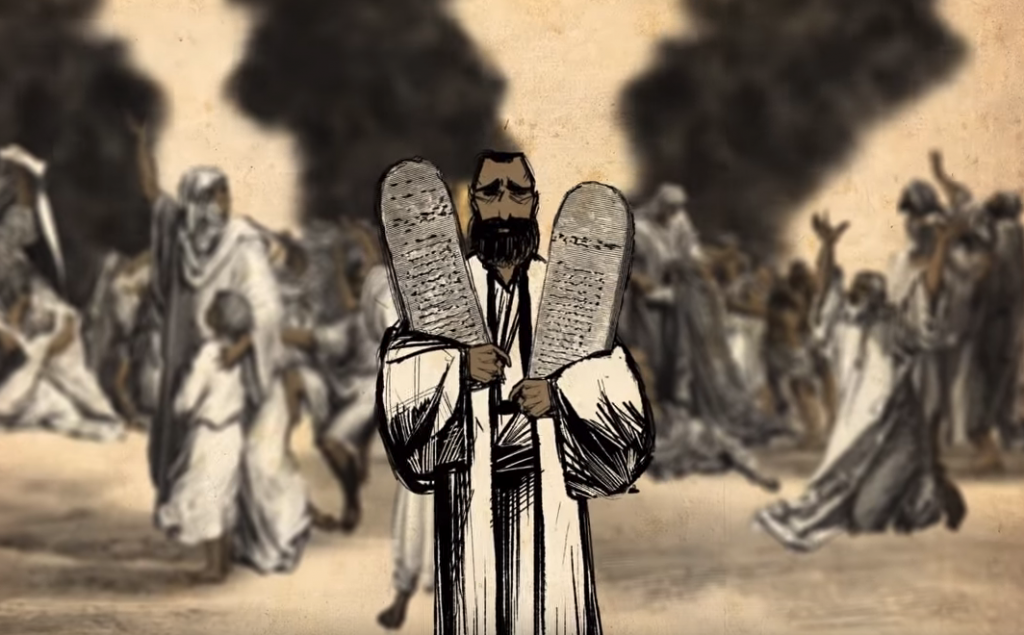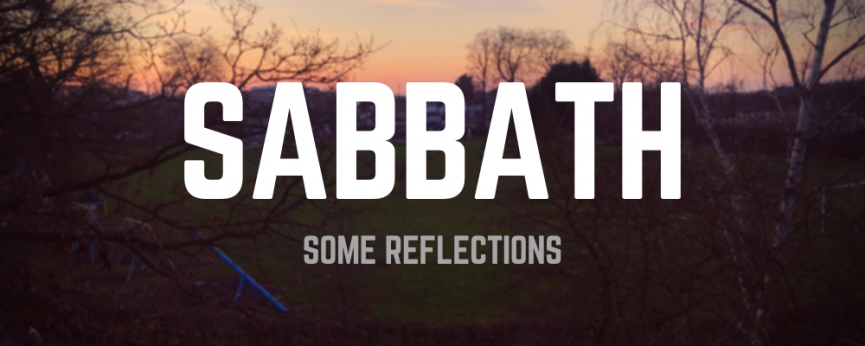In the first post we explored how the idea of ‘rest’ in the Bible is closely linked with the enjoyment of peace that occurs after a crisis has been resolved or when a state of stability has been achieved. This is why God rests only after he has brought about a state of goodness and flourishing from what began in a state of chaos and disorder. We then explored how humanity’s call to partner with God, to work in the world by subduing it and exercising dominion over should be understood as a holy and righteous call but that it begins and flows from a place of trust and rest in God.
At the end of the last post it was briefly noted that humanity’s work in the world only became difficult and a toilsome burden after sin had entered the world through their rebellion. To Adam God says, ‘cursed is the ground because of you; in toil you shall eat the plants of the field. By the sweat of your face you shall eat bread until you return to the ground’ (Gen. 3:17-18). Hard, frustrating, toil may be part and parcel of humanity’s endeavours east of Eden but this was not the way that it was meant to be.
“The Sabbath is not for the sake of the weekdays; the weekdays are for the sake of Sabbath. It is not an interlude but the climax of living.”
Abraham Joshua Heshel
Other ancient peoples had their own creation stories that gave the people their identity and purpose in the world and it is as you compare these with what we find in Genesis that the true uniqueness and beauty of the biblical story can be appreciated. For example, in the creation stories of Babylon, the cosmos was made out of the corpse of a slain god and humanity too were fashioned from their blood and bone and were created as slaves to labour on behalf of the gods. How different this is to the picture of dignity and glory that are bestowed upon human beings in the early chapters of Genesis.
However, even after everything has gone wrong and the sickness of sin has spread throughout creation, God does not give up on his dream of a good and beautiful world where life can flourish. God calls Abraham and says that through him and his family, he was going to bring about healing and restoration to the ends of the earth (Gen. 12). So Abraham beats Isaac, Isaac begets Jacob, and Jacob begets sons who are to become the twelve tribes of Israel. At the end of the book of Genesis we hear of Jacob and his family down in Egypt due to a famine in the land and this sets the scene for the book of Exodus where Israel’s prosperity leads to them being enslaved by the Egyptians for four hundred years. In faithfulness to his promises, God rescues his people from slavery and then gives them the Law, the instructions about how to live as his holy people in their new found freedom. At the heart of these instructions like the Ten Commandments, and at the heart of these commandments, lies the instruction for the people to make sure that they observe the Sabbath.

The Ten Commandments or instructions are given twice in Scripture, once in the book of Exodus and once in the book of Deuteronomy. As mentioned earlier, the command to observe the Sabbath in Exodus 20 is grounded in the example of God when he rested after completing creation but when the Ten Commandments are given in Deuteronomy, it is linked this time with God’s rescue of his people from Egypt. Deuteronomy 5:13-15 says…
Observe the Sabbath and keep it holy as the Lord your God commanded you. Six days you shall labour and do all your work.But the seventh day is a sabbath to the Lord your God; you shall not do any work – you, or your son or your daughter, or your male or female slave, or your ox or your donkey, or any of your livestock, or the resident alien in your towns, so that your male and female slave may rest as well as you. Remember that you were a slave in the land of Egypt, and the Lord our God brought you out of there with a mighty hand and an outstretched arm; therefore the Lord your God commanded you to keep the Sabbath day.

In Egypt, the toil and struggle brought about through sins curse upon humanity’s work was outworked in their slavery but God heard their groans and their cries and he came down to rescue them. The gift of rest in the command to observe the Sabbath stands in direct contrast to the back-breaking and relentless servitude that the people of Israel suffered under the Pharoah. The promise of God was that he would not only deliver his people from their slavery in Egypt but that he would also bring them into the land that he had promsied to their ancestor Abraham and this, in a sense, would be like a restoration of the garden of Eden for here they would find rest (Deut. 3:20. 12:8-11, 25:19; Josh. 1:13). What is fascinating and crucial to note however is that God required that the people begin to practice keeping the Sabbath whilst they were still in the wilderness and therefore before they had actually entered the promised land of rest. The people of God were to take a Sabbath day of rest every week as a reminder and sign of what God had done in creation, what he had done in delivering them from slavery, AND in anticipation of the future rest that he had promised them!
In both creation and deliverance God works to overcome dark chaotic forces to bring about a good, orderly, life-giving, fruitful and blessed state of affairs for his people and this will be complete when he brings them into the fullness of rest that he has promised to give them.

